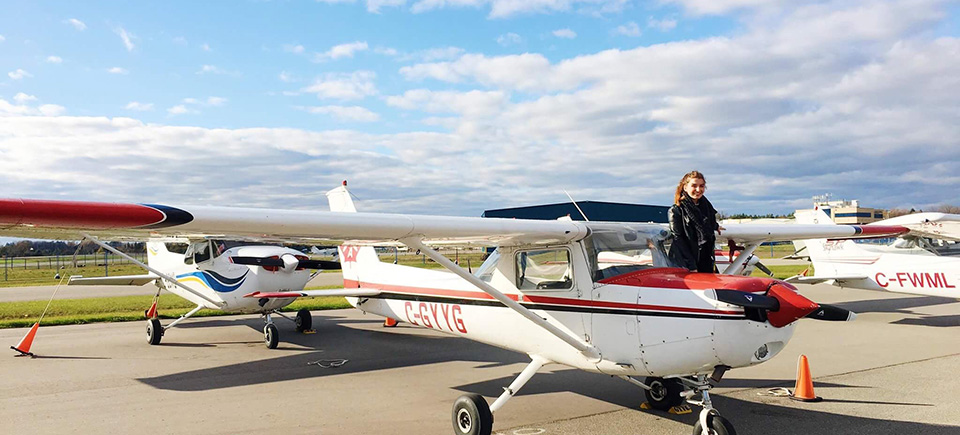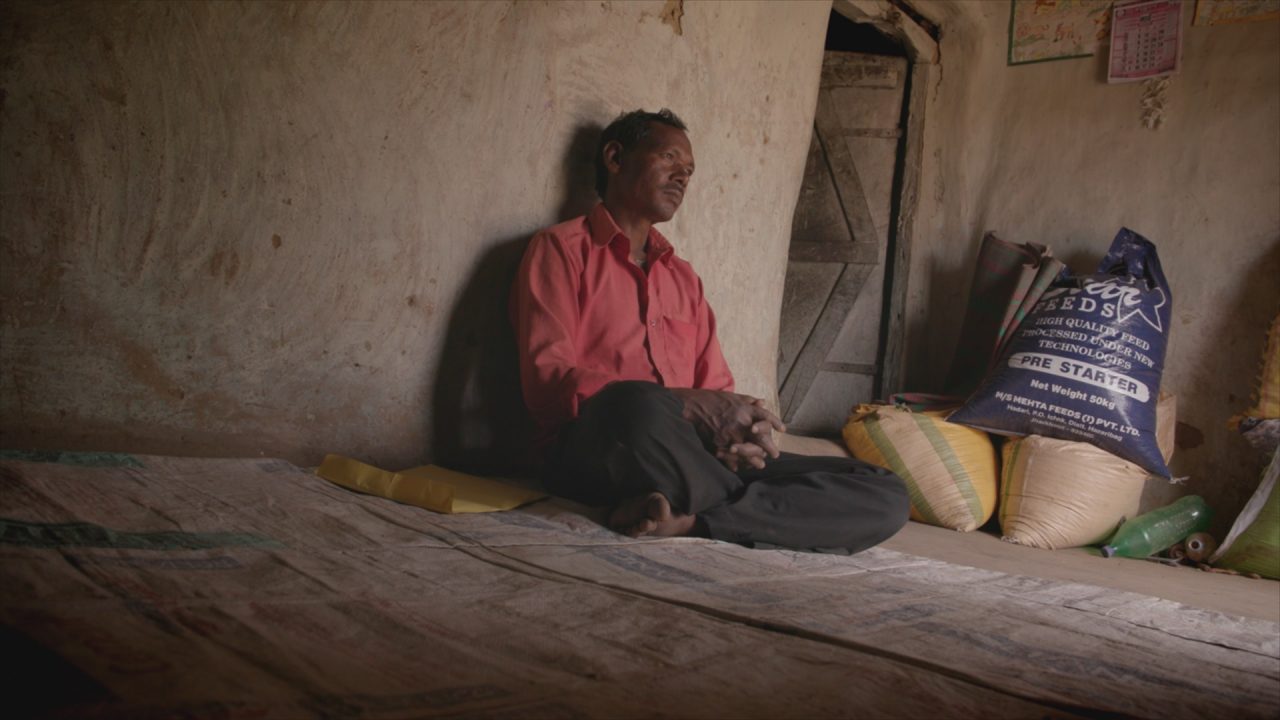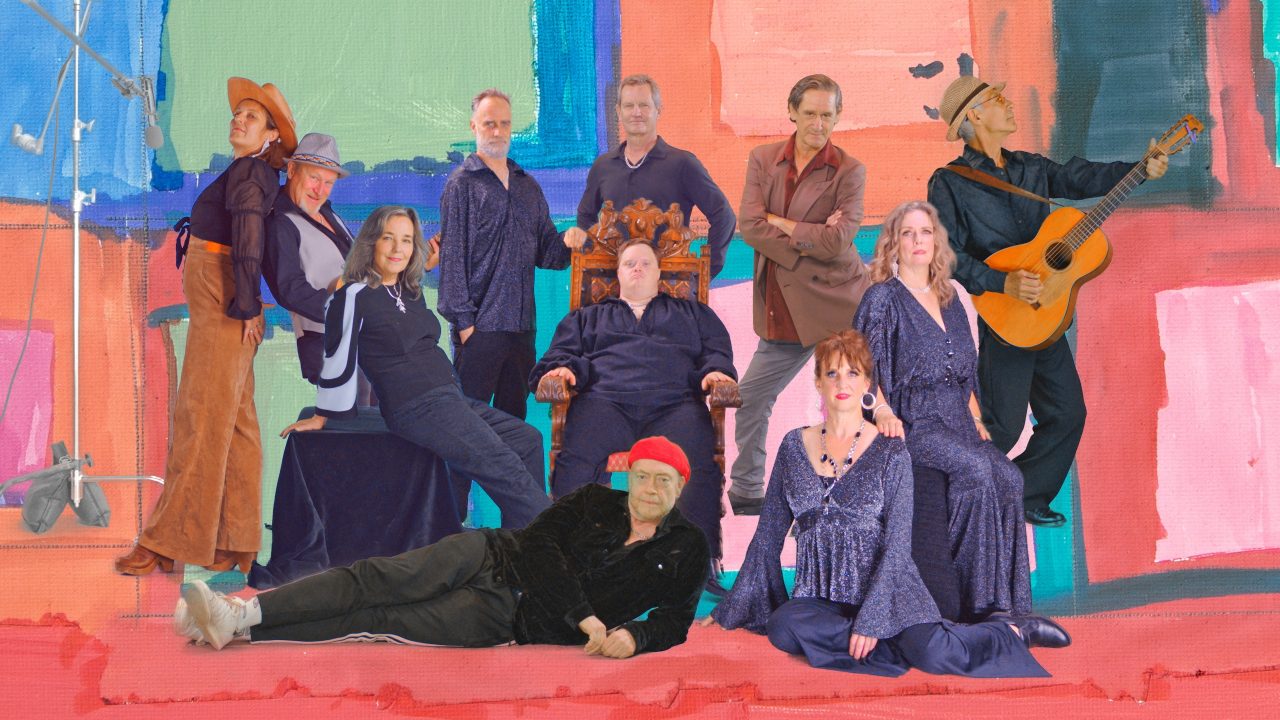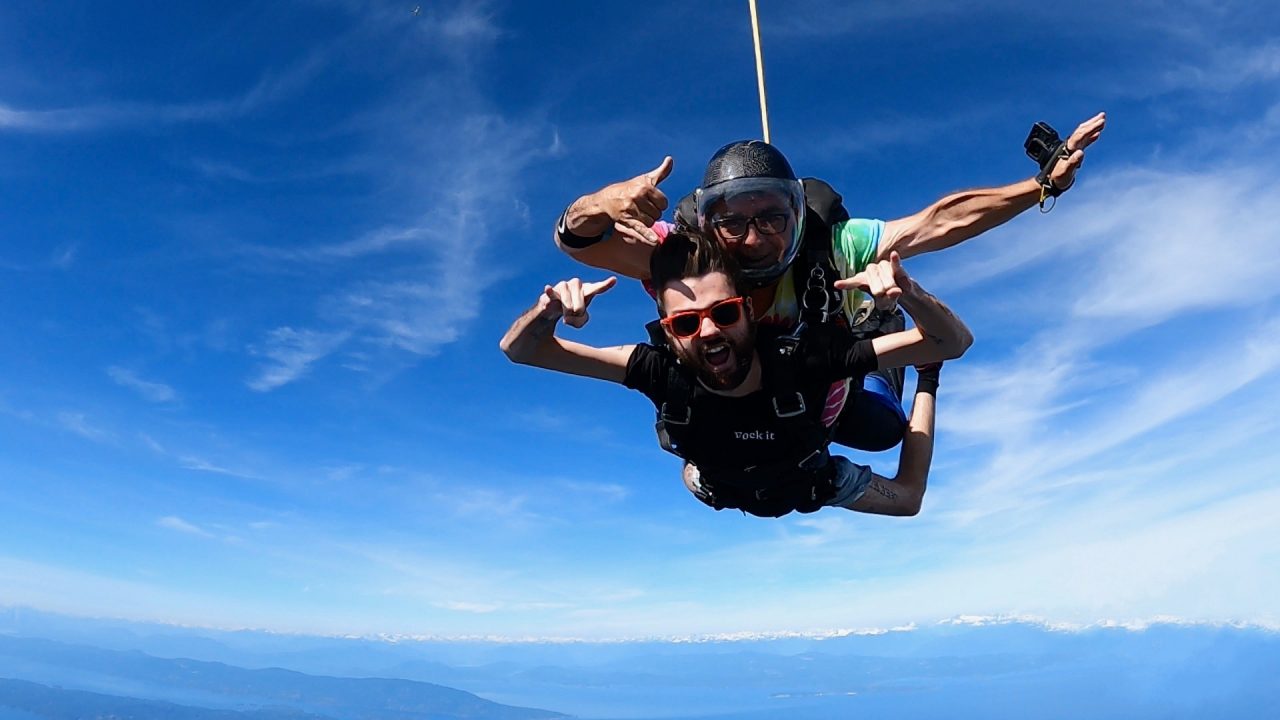
Taking Flight: In Conversation with a Young Female Pilot from As the Crow Flies
Taking Flight: In Conversation with a Young Female Pilot from As the Crow Flies
As the Crow Flies provides a rare insider’s glimpse into the Royal Canadian Air Cadets’ intensive seven-week flight training camp. Following a group of 17-year-olds on the brink of adulthood, filmmaker and cinematographer Tess Girard captures their unique grace under pressure throughout a program typically completed over six to eight months. Girard sat down with one of her subjects, Emma Flanagan-Dellipizzi, presently working toward her Commercial Pilot license at the Canadian Flight Academy in Toronto, to discuss life before, during and after the film.
As the Crow Flies, Tess Girard, provided by the National Film Board of Canada
Deciding to Fly
Tess Girard: When I applied for the Power Pilot Scholarship, I had no idea if I wanted to be a pilot. But the opportunity existed and many people above me had done it. I wanted to challenge myself to see if I could achieve it.
Emma, what made you want to pursue the flying scholarship?
Emma Flanagan-Dellipizzi: I too never imagined I would become a pilot. Growing up it simply wasn’t something I was ever really exposed to. Applying for the flying scholarship was absolutely a “why not” decision. While a few others in my squadron had partaken in the program, not many had shared their experiences, so I didn’t know what to expect, nor did I anticipate what kind of challenge earning the license would be. I truly did not have an understanding of how important and powerful an opportunity the scholarship would prove to be—but what I did know was that it was a free pilot’s license and a neat way to spend a summer, so why not?
TG: It’s been two years since you’ve graduated. What are you up to now?
EFD: I recently made a big decision to pause my university studies and dedicate myself to full-time flight training. I’m currently working to acquire my commercial pilot license by the end of this year, and I’ll begin training for my instructor rating immediately after.
TG: Does that mean it might come full circle and you might even be teaching cadets in the same program in the future?
EFD: There’s definitely a possibility that I could. I’m actually quite lucky to be helping cadets from my old squadron with their studies as they prepare for their scholarship entrance exams this year. I think it’s fantastic to get to share my experiences and give back to the program in that way.
Women in Flight and in Film
TG: That’s so great that you’re moving forward with aviation and continuing to give back. Even though I wasn’t sure I wanted to work in aviation, I’m glad I pursued my license. I don’t fly anymore, but flying gave me the confidence to pursue something very technical, risky and adventurous, often not encouraged to young women. It forced me to push my boundaries so I could see a new perspective: all of which are qualities that I’ve found and cherish in filmmaking.
Has pursuing your license changed you?
EFD: Completing the license at such an impressionable age really shaped the person I am today. I spent that summer learning to test my own limits and growing my confidence. It was all about taking risks and challenging myself—academically, physically and emotionally. Most importantly, it was the opportunity in which I truly had the ability to develop my own independence as a young woman.
TG: Working in an industry that constantly asks, “Where are all the women?,” I’m noticing more and more how being the only woman in the room affects my daily experience. I have very strong women in my family as mentors, but gender politics are ever-present despite how determined or encouraged any woman is. As the Crow Flies is about both genders learning to fly, but when I was sent to an all-male centre for my first scout, I knew there was no film if it wasn’t rooted in the female lens.
I was struck by how strong, persevering, intelligent and insightful you five women were when I met you. The way you see the world is more akin to how I do and how I wanted the language of the film to be expressed.
How did it feel as one of only five young women at this Flight Centre? Were there added pressures?
EFD: It becomes a different world to live in when, as a woman, you join an industry in which you are a minority. The flying scholarship program was my first taste of this, where I truly felt that pressure of that new world. Overall, I feel incredibly fortunate to say that despite there being only five of us, we were very strongly supported by our male peers, the flight centre, our home squadrons, our friends and family, and most importantly by each other. We certainly felt pressures like any other person who has participated in the program, as it is incredibly intensive. However I do feel that there absolutely were additional pressures felt—pressures that came from individuals who didn’t appear to be as confident in our abilities or supportive of our efforts. As a young woman I felt derailed by this—and even now it’s still something I’m faced with.
Glass Ceilings and Safe Spaces
TG: As women, we talk about pressures, but until we experience them firsthand, it’s hard to understand or articulate exactly what they are. An example from my perspective in film would be that I’m often asked whether I’m doing a certain basic task (that I’m well-versed in) for the first time, or if I’m making a student film. Or I’m sometimes questioned on my technical knowledge. Even though it’s not an everyday experience, it fosters pressure that I put on myself to do better. If I only know 90 percent of a certain skill, I see that missing 10 percent as a flaw and work tirelessly to close that gap. Could you go into more detail on some of the pressures you felt or now feel? Are they internal, or external?
EFD: There are a number of different external pressures I feel, each one unique. These pressures have come from people who admittedly do not believe in my abilities, or people who try to assist me with tasks that are a part of my own routine. These pressures can so quickly become belittling and make it so hard for myself and other women to strive for their goals. However, other external pressures are more positive—like the pressure I feel from the people around me who do support me and who are excited for me to achieve my goals. Experiencing both types is what drives my own internal pressures and I aim to use it all as motivation. I also feel a need to improve that missing percentage in order to be the greatest version of myself. I am driven to continuously improve on my strengths and weaknesses in order to prove to myself and others who pressure me that I am capable of anything.
TG: I’d like to point out that I could really see how hard you worked! You’re one of the smartest people I’ve ever met and there was barely a moment of down time where you weren’t trying to “close that gap”. But I think having a good bond between the young women at the flight centre created a palpable support system. One of the ways I’ve dealt with the gender pressures in the film industry is to find strong female filmmakers who can mentor me. This is something I haven’t been able to do until the past couple of years, and it’s been an incredible shift for me. In turn, I make it my intent to provide positive female environments for those surrounding me and those I mentor. It’s amazing what a difference a majority female crew makes to a production.
What do you think we can do for women in aviation to alleviate those pressures and help them thrive?
EFD: I believe it is definitely important to showcase the abilities and talents females have in industries like our own. It is so valuable to have great mentors who can inspire young girls to challenge themselves and achieve their goals. However—this may seem contradictory—I think it is also important to make a comfortable environment for young women in aviation where their presence is normalized. Having the ability to stand in a room as the only woman and not feel out of place has been something that has greatly developed my confidence recently. It really is empowering to truly feel accepted and as though I am no different in my work and training environment, and it greatly contributes to my ability to be successful.
TG: That is so true. It’s not about creating separate spaces, but fostering a balance between the two environments creates positive spaces in both realms. Women can be nurtured by working with both men and women, and men can be too! When I see a plane overhead now in your area, I’ll wonder if it’s you.



